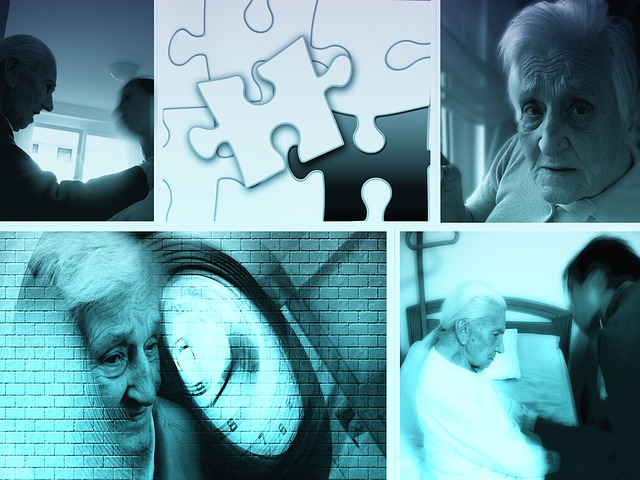Senior Care: What is Alzheimer’s?
So what exactly is Alzheimer’s
Alzheimer’s disease is a progressive neurological disease that, over time, results in the brain’s inability to function correctly. Alzheimer’s disease causes lapses in memory, communication, judgment and overall functioning.
 Alzheimer’s was first identified by Alois Alzheimer in 1906 in Germany and is the most common type of dementia, a general term for impaired brain functioning. Other dementias include frontotemporal dementia, Huntington’s disease, vascular, Lewy body dementia, Parkinson’s disease dementia, and Creutzfeldt-Jakob disease. Dementia can also develop from potentially reversible conditions such as normal pressure hydrocephalus or vitamin B12 deficiency, as well as severe infections such as late-stage AIDS.
Alzheimer’s was first identified by Alois Alzheimer in 1906 in Germany and is the most common type of dementia, a general term for impaired brain functioning. Other dementias include frontotemporal dementia, Huntington’s disease, vascular, Lewy body dementia, Parkinson’s disease dementia, and Creutzfeldt-Jakob disease. Dementia can also develop from potentially reversible conditions such as normal pressure hydrocephalus or vitamin B12 deficiency, as well as severe infections such as late-stage AIDS.
There are two types of Alzheimer’s disease: early onset Alzheimer’s, defined by onset before age 60, and late onset, or typical, Alzheimer’s.
Symptoms and Effects of Alzheimer’s
Symptoms of Alzheimer’s include problems with memory, communication, comprehension, and judgment. The individual’s personality may begin to change somewhat as well.
As the disease progresses, the individual gradually loses the ability to function mentally, socially, and eventually physically. Often in the middle stages of Alzheimer’s, he or she may also display inappropriate behaviours and emotions, which can be challenging for loved ones to handle. In its final stages, the person is completely dependent upon caregivers for basic needs.
Who Gets Alzheimer’s Disease?
There are an estimated 5.4 million people in the United States with Alzheimer’s or a related dementia, although not all are diagnosed. Additionally, researchers estimate that as many as 500,000 of those 5.4 million people in the United States have early onset Alzheimer’s. Alzheimer’s is not part of normal aging; however, as people age, the likelihood of developing Alzheimer’s increases.
Thirteen percent of individuals over age 65 have Alzheimer’s or another form of dementia, while almost 50% of individuals over age 85 have Alzheimer’s or another kind of dementia. The demographic group with the highest percentage of Alzheimer’s is Caucasian females, likely since their life expectancy is the greatest.
Diagnosing Alzheimer’s
Diagnosing Alzheimer’s disease is done, by ruling out other diseases or causes, reviewing family history and conducting a mental exam to see how well the brain is working. Some physicians also conduct imaging tests, which can show changes in the brain’s size and structure that may lead to the conclusion of Alzheimer’s.
While general practice physicians often diagnose Alzheimer’s, you can also seek an evaluation from a psychologist, geriatrician, or neurologist. Alzheimer’s cannot conclusively be diagnosed until after death when an autopsy is conducted and brain changes can be identified; however, diagnosis through the above tools is the industry standard at this time and has proven very accurate.
Treatment of Alzheimer’s
Alzheimer’s has no cure at this time, but determining more effective treatment and prevention methods, as well as finding a cure for the disease, is a high priority for researchers. Current treatment for Alzheimer’s focuses on alleviating the symptoms of Alzheimer’s, both cognitive and behavioural, by using drug therapy and non-drug approaches.
Drug Therapy
- Cognitive enhancers are medications that attempt to slow the progression of Alzheimer’s symptoms. While these medications do appear to improve thought processes for some people, the effectiveness overall varies greatly. These medications need to be monitored regularly for side effects and interaction with other medications.
- Psychotropic medications can be prescribed, to target the behaviour and emotional symptoms of Alzheimer’s. Psychotropics are medications that address the psychological and emotional aspects of brain functioning. For example, if a person is experiencing distressing hallucinations, a psychotropic medication, such as an antipsychotic medication, can be prescribed and is often helpful in relieving the hallucinations. As with cognitive enhancers, psychotropics have the potential for significant side effects and interaction with other medications, so they should be used carefully and be coupled with non-drug approaches.
Non-Drug Approaches
Non-drug approaches focus on treating the behavioural and emotional symptoms of Alzheimer’s by changing the way we understand and interact with the person with Alzheimer’s. These approaches recognize that behaviour is often a way of communicating for those with Alzheimer’s, so the goal is to understand the meaning of the behaviour and why it is present.
Non-drug approaches should generally be attempted before using psychotropic medications since they do not have the potential for side effects or medication interactions.
The goal of these approaches is to develop more effective interventions by adjusting the caregiver’s approach or the environment to minimize the challenging behaviours.
Preventing Alzheimer’s
There are abundant theories about how to prevent Alzheimer’s, but currently there is no sure-fire way to do this. A heart-healthy diet, an active lifestyle with plenty of physical exercise and social interaction, and regular mental exercise are strategies that some feel are effective in preventing Alzheimer’s.
Coping With Alzheimer’s
If you think that you or someone you know may have Alzheimer’s, know that we are here for you, both to provide current information and also to facilitate the sharing of ideas and suggestions from others in your situation. Being proactive and prepared can ease some of the challenges of this disease for you and your family. Coping with Alzheimer’s is not easy, but it’s not something you need to do alone.
Please contact us today, to discuss any of the above mentioned challenges you may be facing and how our services can help you remain independent, protected, safe, and in you home / community.
You got questions, we have answers: (905) 785-2341 or email us at homecare@inourcareservices.com
Sources:
Alzheimer’s Association What is Alzheimer’s? Accessed July 12, 2011.
Alzheimer’s Association Basics of Alzheimer’s Disease. Accessed July 12, 2011.
PubMed Health US National Library of Health. What is Alzheimer’s Disease? Accessed July 12, 2011.

